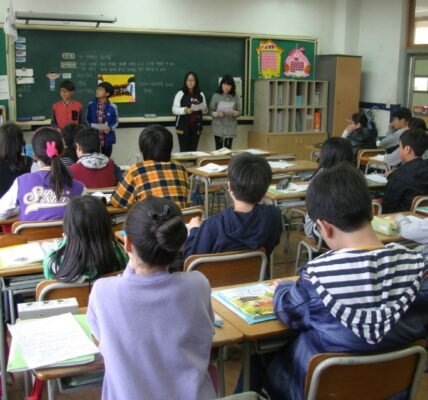In an interconnected world, education has transcended geographical and cultural barriers. The advent of technology, global partnerships, and inclusive approaches has sparked new waves in global education, reshaping how knowledge is imparted and accessed. This blog delves into these transformative trends, showcasing how they empower minds across the globe and prepare learners for the future.
New Waves in Global Education
1. Technology-Driven Learning
The integration of technology into education has revolutionized learning methodologies. Tools such as artificial intelligence (AI), virtual reality (VR), and learning management systems (LMS) have made education more accessible, engaging, and personalized.
Key Technological Trends:
- AI-Powered Learning: Tools like chatbots and personalized assessments cater to individual needs.
- Virtual Classrooms: Platforms like Zoom and Microsoft Teams facilitate remote learning.
- Gamification: Apps like Kahoot enhance student engagement through interactive quizzes.
These innovations bridge gaps in education, enabling access for learners in remote areas and fostering inclusivity.
2. Global Collaborative Learning
Education is no longer confined to local or national boundaries. Global collaboration fosters cultural exchange and enriches learning experiences.
Examples of Global Collaboration:
- International Partnerships: Schools partner with global institutions for student exchange programs.
- Cross-Cultural Projects: Platforms like iEARN connect students from different countries to solve global challenges.
- Massive Open Online Courses (MOOCs): Courses from platforms like Coursera and edX allow access to top global educators.
Such initiatives help students develop critical thinking, adaptability, and cultural awareness.
3. Focus on Inclusive Education
Modern education embraces diversity, ensuring that every learner, regardless of their abilities or background, receives quality education.
Strategies for Inclusion:
- Adapting curricula to accommodate students with disabilities.
- Implementing multilingual programs for diverse populations.
- Providing scholarships for underprivileged learners.
Inclusive education fosters equity and ensures that no learner is left behind.
4. Sustainability in Education
Sustainability has become a core focus of global education. Students are taught to address environmental issues and adopt sustainable practices.
Examples of Sustainability Initiatives:
- Incorporating climate education into the curriculum.
- Encouraging hands-on projects, like school gardens or recycling programs.
- Partnering with organizations to promote eco-friendly practices.
Empowering students with knowledge about sustainability prepares them to tackle pressing global challenges.
5. Lifelong Learning and Skill Development
In a fast-changing world, the importance of lifelong learning cannot be overstated. Education systems now emphasize continuous skill development to prepare students for evolving industries.
Key Lifelong Learning Trends:
- Offering micro-credentials and certifications in specialized skills.
- Promoting STEM (Science, Technology, Engineering, Math) and STEAM (including Arts) education.
- Partnering with industries for internships and practical exposure.
By fostering a culture of lifelong learning, education ensures learners remain adaptable and competitive.
6. Mental Health and Well-Being in Education
Recognizing the importance of mental health, educational institutions now integrate well-being programs into their curriculum.
Key Components of Well-Being Programs:
- Social-emotional learning (SEL) to build resilience and empathy.
- Access to mental health resources and counseling.
- Encouraging physical activities and mindfulness practices.
A focus on mental health creates a nurturing environment where students can thrive academically and emotionally.
The Impact of New Waves in Global Education
1. Bridging Educational Gaps
Technology and international collaborations reduce disparities in education access. From rural areas to urban centers, students can now learn from world-class educators and resources.
2. Enhancing Cultural Competency
Global projects and partnerships expose students to diverse perspectives, fostering cultural understanding and global citizenship.
3. Preparing for Future Challenges
By focusing on sustainability, inclusivity, and mental health, these trends prepare students to tackle real-world challenges and create a better future.
Conclusion:
The emergence of new waves in global education is reshaping how we perceive learning. Through technology, collaboration, inclusivity, and sustainability, education is empowering minds and paving the way for a brighter future. By embracing these trends, educators and learners alike can contribute to a more equitable and innovative global education system.
Education is no longer just about academic excellence; it’s about nurturing a generation equipped to lead in a complex, interconnected world.





